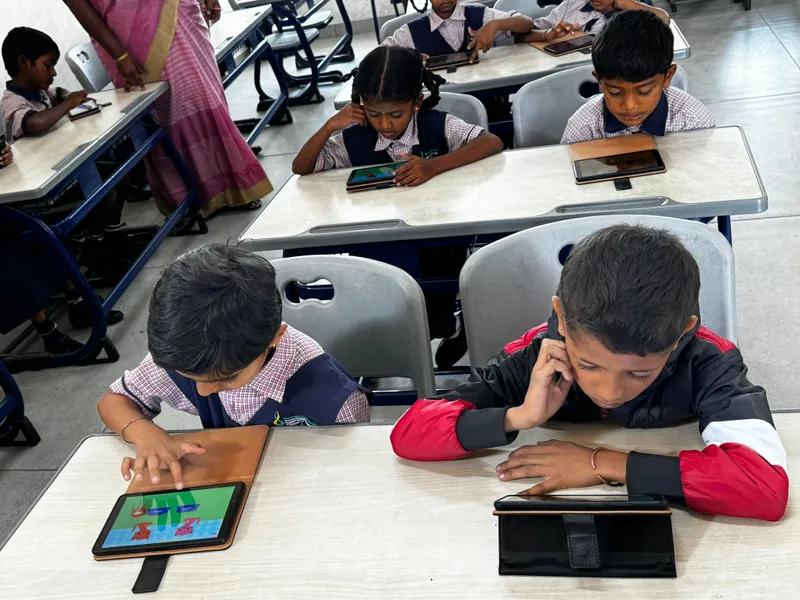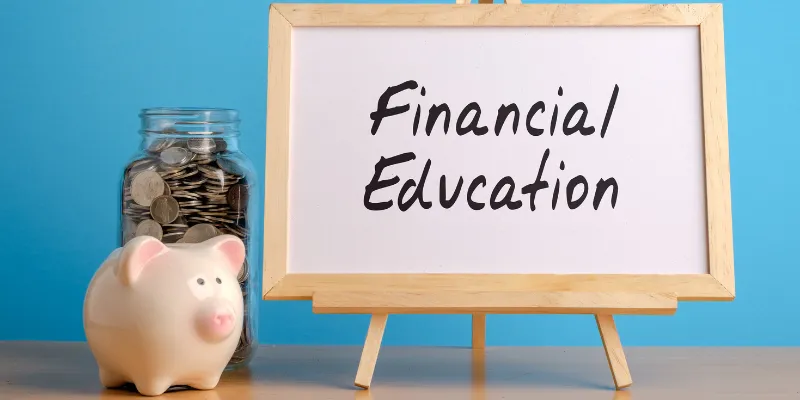Bengaluru Airport's initiative is empowering underprivileged children via financial literacy
In July last year, The Bangalore International Airport (BLR Airport), under its CSR arm–Kempegowda International Airport Foundation (KIAF), started a financial literacy programme in Government Higher Primary School, Aradeshanahalli.
Every month, Suhas, a Government Higher Primary School student in Aradeshanahalli, goes to the bank to deposit his pocket money. He has so far saved Rs 2,000 and wishes to continue doing so until he can buy a new bicycle.
Suhas is one of the 47 students in the sixth standard at the government school in Aradeshanahalli who are learning financial literacy through a programme organised by the Kempegowda International Airport Foundation (KIAF)–the CSR arm of Bangalore International Airport Limited (BIAL)
“I like the financial literacy classes and look forward to them in the week. I liked the lesson on the difference between needs and wants. Now, I find myself thinking before buying anything and have cut down on wants. Through these sessions, I understand the concept of saving and I am learning how to manage my money properly,” he tells SocialStory.

The financial literacy programme began last July and ended earlier this month.
The school has been rebuilt by KIA as part of the ten-year MoU with the Department of Education, Government of Karnataka.
The pilot programme, which began last July and ended earlier this month, was supported by the Australian Consulate General.
Hemanth Madegowda, AVP of Corporate Social Responsibility at the International Airport, tells SocialStory, “financial management is a life skill that needs to be inculcated within students from a young age. It is a behavioural change that cannot be taught overnight."
He further elucidates that most students of this school are the children of daily wage labourers and industrial workers who are often faced with financial crises and therefore, financial literacy is vital for them. Aradeshanahalli falls under the Bangalore rural district.
"These children will learn financial skills, which they can then apply back at home, contributing to their family's financial well-being,” he adds.
Each session is 40 minutes to one hour long. The programme consists of 30 concepts which include–an understanding of currency, the difference between need and want, savings, interest, loans, credit, and more.
Navyashree from the same class also shares, “Before these, I'd buy snacks with any money I was given whereas now I save most of it. This new curriculum has also broadened our general knowledge.”
Two trainers have conducted these classes so far, however, Madegowda shares that this year, these trainers will also train other teachers to take these sessions.
He adds that the concepts are taught to the students through interesting activities.
For instance, to teach the difference between needs and wants, students are told that they have Rs 50 and that they are at a shop where they are asked to buy various items. Through this activity, students are provided with decision-making opportunities to choose between different items as per their needs and wants.
After every five classes, an activity-based assessment is conducted to check the understanding of the students.
So far, only students of class six have been enrolled in the programme. However, these sessions will soon be extended to class seven students. Madegowda elaborates that this project will be conducted for three years in the present school after which it will be expanded to other schools.
Apart from Aradeshanahalli, four other government schools have also been adopted by BIAL in Devanahalli Taluk of Bengaluru Rural district.

The infrastructure of these schools has been improved. These schools now have furniture, labs, safe water, and solar power.
Navyashree from the government school in Aradeshanahalli seconds it and adds, “The school was in a dilapidated state earlier. We had only one washroom for teachers and students which was also in a bad condition. Earlier we used to only receive lunch, whereas now we get morning tiffin with milk. Now, we also have activity-based classes like Karate and more.”
BIAL also works with the Government of Karnataka to help students by giving them breakfast, learning kits, and access to subject experts. They also focus on promoting extracurricular activities for students.
Edited by Affirunisa Kankudti







